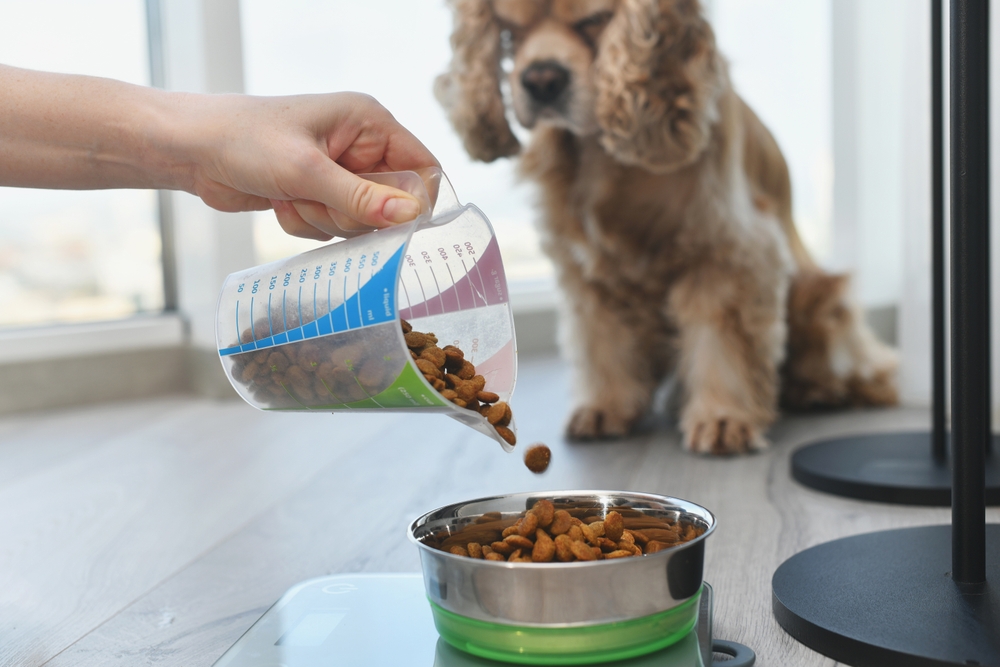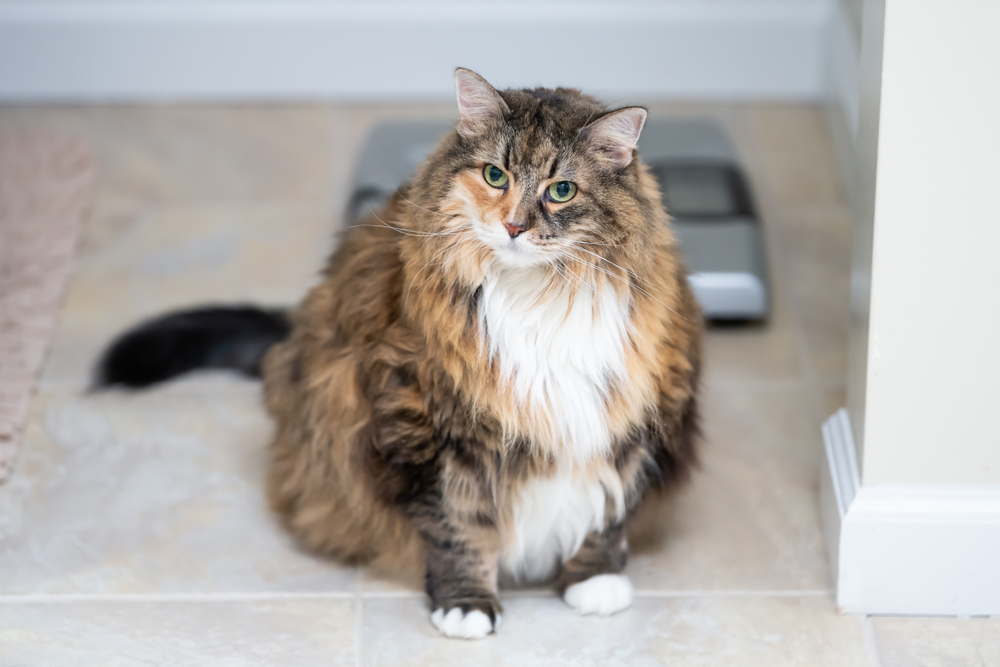We can apply much of what we know about people’s nutrition and weight to pets. However, myriad misinformation regarding pet foods and pet diets can make the issue seem overwhelming. Our Pioneer Animal Hospital team members are experts in pet nutrition and weight control strategies, and we use evidence-backed methods to help your pet reach and maintain their goal weight. Your pet’s weight loss journey starts with education. So, read our guide to pet obesity and weight management. We’ve also added a few of our secrets for pet weight loss success!
Obesity prevalence in pets
According to surveys and studies by the Association for Prevention of Pet Obesity (APOP), 59% of dogs and 61% of cats are classified as overweight or obese. This means that more than half of pets carry extra pounds that could harm their health, but many pet owners are unaware of the problem. You may have difficulty recognizing a healthy body size or shape and determining your pet’s ideal weight.
Our team performs a body condition scoring (BCS) assessment during every sick and well pet visit. A BCS system is a method for evaluating your pet’s weight in relation to their overall body size. A BCS takes into account a pet’s muscle tone, fat deposits, and body shape to evaluate each pet individually rather than comparing them to a standardized weight range, which we know is problematic when assessing a person’s body condition.
A BCS of five out of nine is considered ideal, with lower numbers indicating low body weight and higher numbers indicating excess weight. Our Pioneer Animal Hospital team can discuss your pet’s current score, demonstrate how to evaluate their body condition at home, and help you visualize your furry pal’s ideal shape.
Obesity health risks in pets
Increased weight correlates to an increased disease risk in pets, including arthritis, diabetes, high blood pressure, heart and lung conditions, and kidney disease. Excess fat may promote systemic inflammation, setting the stage for the development of a health condition. Because of their increased susceptibility to disease, overweight pets live an average of two years fewer than their counterparts who are at a healthy weight. Keeping your four-legged friend’s weight in an ideal range will help them live a longer, healthier life.
Nutrition and exercise strategies for pet weight loss
Pet food and nutrition are topics that are shrouded in myths and misconceptions, many of them perpetuated by pet food marketers and a few loud social media voices. Choosing the right food is crucial to ensure your furry pal gets the nutrients they need to thrive while helping them reduce excess body fat. Your pet’s energy requirements, daily activities, age, breed, lifestyle, and health conditions all factor into food choice. Our Pioneer Animal Hospital veterinary team is knowledgeable about pet nutrition and can recommend an over-the-counter (OTC) or prescription veterinary diet that will meet your pet’s unique needs for weight loss and maintenance.
Regular exercise is important not only for weight management but also to maintain overall health. Exercise is mentally stimulating, can reduce anxiety and other behavior problems, and helps maintain or improve mobility and joint function in pets with arthritis or at risk for developing the condition. Start with short daily walks for dogs or indoor play sessions for cats and gradually increase the intensity or duration as your pet’s fitness improves. Swimming is another helpful activity for fitness and joint health that your dog can perform year-round at an indoor pet rehabilitation and swim facility.
Our secrets for pet weight management success

The most important ingredient to a successful weight management program is professional veterinary oversight and advice to ensure your pet’s plan works for their individual needs, meets nutritional requirements, and does not cause them harm. Other secrets to your pet’s weight loss success include:
- Aim for slow, steady progress — Quick weight loss can be harmful, and cutting back on food too quickly can leave your pet feeling hangry. Aim for your pet to lose 3% to 5% of their total body weight per month.
- Make a family commitment — Get the entire family on board with your pet’s weight loss plan by emphasizing the benefits of your furry pal being at a healthy weight. If one family member goes rogue and slips your pet extra goodies, they can derail other family members’ diligence and your pet’s weight loss progress.
- Check-in frequently — Frequent weigh-ins and checkups with our Pioneer Animal Hospital team help ensure your pet’s weight loss plan is on the right track and allow us to adjust our strategy if necessary.
- Trade in the treats — Swap high-energy treats for healthy, crunchy, satisfying vegetables. Offer your pet green beans, bell peppers, celery, or cucumber slices.
- Feed a prescription diet — Prescription diets may seem expensive initially, but they are scientifically tested and proven to work as they claim. A prescription pet food diet can reduce your pet’s inflammation, treat any specific health concerns, improve their satiety, and reduce your furry pal’s weight safely.
Proactively managing your pet’s weight is critical to maintaining their good health and enhancing their longevity. Our experienced veterinarians and staff are uniquely qualified to help you in this endeavor because we can rule out underlying medical issues, evaluate potential secondary complications, and prescribe a comprehensive treatment plan. Schedule your pet’s wellness visit and weight management consultation with our Pioneer Animal Hospital team.

